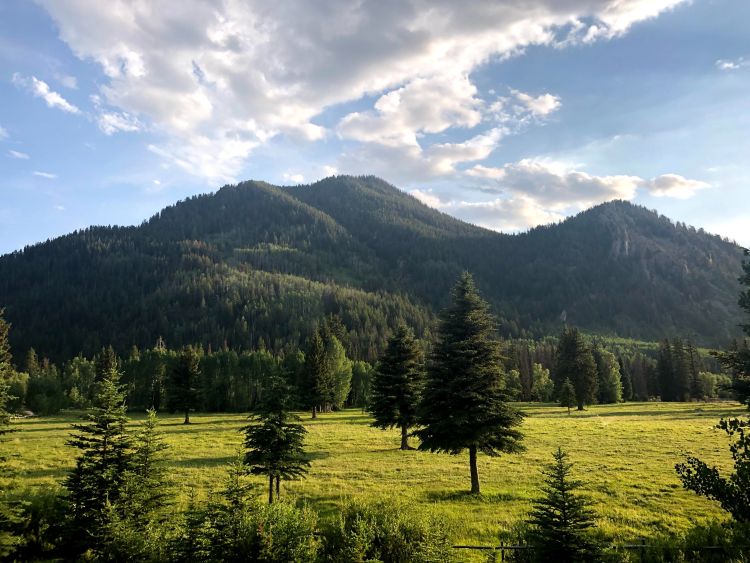Most Christians know that sin is bad. But, how bad is it, really?
Sin is a tornado, and the final chapter of Lamentations helps us see the extent of the damage. The consequences of breaking covenant with the Lord are dire. And yet, there is still hope for restoration.
See Our Disgrace
The first verse in this chapter frames much of what follows.
Remember, O Lord, what has befallen us;
look, and see our disgrace! (Lamentations 5:1)
The author is asking God to remember, to bring to mind for the purpose of action. Asking God to see and remember is a key part of all lament; those who lament are pleading that God would not forget them in their circumstances.
However, this is an unnatural request, that God would see or notice our disgrace. We usually like to hide those qualities and circumstances that are shameful. But in this situation, those embarrassments are exactly the reason for the lament!
Verses 2–18 provide a list of many disgraces of the people still living in Jerusalem. These disgraces range from the horrifying (deaths of fathers in Lam 5:3, rape of women in Lam 5:11) to the seemingly mundane (the people now have to pay for water and wood, Lam 5:4). To be sure, far more disgraces fall in the first category than the second, but the mingling of the two makes a profound point: Sin has brought judgment which has overturned every aspect of life. Even the loss of music and dancing (Lam 5:14–15) can be considered a tragedy.
One other disgrace is worth mentioning. In Lam 5:16, we read: “The crown has fallen from our head; woe to us, for we have sinned!” This is both a confession of sin and a lament about Judah’s inability to rule themselves. They are now in the hands of Babylon. This confession about leadership also sets the stage for verse 19 (see below).
On the whole, this first portion of Lamentations 5 (verses 1–18) shows us that the consequences of sin are real and heartbreaking. There is a direct line between the rebellion of the people and the desolation of Zion, and the present grief and loss are a result of earlier decisions to turn away from God.
Renew Our Days
The chapter takes a bit of a turn in verse 19: “But you, O Lord, reign forever; your throne endures to all generations.” Judah may no longer have a king ruling in Jerusalem, but that is not true on a larger scale.
In the midst of lament, acknowledging the sovereignty of God is vital. His rule is not negated by suffering. Pain and sorrow are not in charge—God is. Because grief and sadness feel so immediate and enveloping, God’s people must remind each other of this truth. The Lord reigns now and forever.
Verse 20 takes us into the deep questions of an honest lament. Lord, if you reign, “why do forget us forever?” If you’ve heard that asking “why” questions is forbidden in prayer, think again. God’s people should not accuse him of wrongdoing or blame him for evil, but laments are filled with “why” and “how” questions. (See Psalm 10:1, 35:17, 42:9, and 43:2 among many examples.)
The author of Lamentations then asks the boldest prayer in the entire book.
Restore us to yourself, O Lord, that we may be restored!
Renew our days as of old— (Lamentations 5:21)
The people want Jerusalem to be the way it was, they want to be restored. But they confess that restoration with the Lord must happen first. Jerusalem is in ruins because the people turned away from God, so a vibrant renewal of that covenant relationship is needed before any of the physical blessings can be enjoyed.
There is a good reminder here for modern Christians. When we see brokenness and rebellion in ourselves and others, we should think about the need for repentance and restoration to the Lord. A wayward heart is driving the train which is producing those acts of unrighteousness.
This chapter ends in a way that many Christians through the ages have found unsatisfying. (Apparently, some scribes have recopied verse 21 after verse 22, presumably to prevent the book from ending on a down note!) But tension is inherent in lament, and we need to learn how to embrace that tension if we are to be followers of Jesus who both rejoice and weep (Romans 12:15).
Here is the ending of Lamentations.
unless you have utterly rejected us,
and you remain exceedingly angry with us. (Lamentations 5:22)
The people know God has promised to bring them back from exile (Lam 4:22). And yet they do not know exactly when. God’s righteous anger may mean that this generation will not see the restoration they desire.
This tension—restore us, unless you remain angry with us—is a bit unsettling. But it also serves one of the purposes of lament, to keep us turning back to the Lord again and again. Our prayers may not be answered immediately; our sorrows may remain; we may feel seasick in heart through our years on this groaning earth.
Rejected No More
But God is always ready to receive our lament. He reigns forever, he is wise, and he is loving. For this reason, we can trust him with our pain and grief.
The Israelites wondered whether God had rejected them. We may wonder the same. But in Jesus we have an emphatic, definitive answer. No. Because Jesus bore our sin, we are no longer subject to that same awful judgment that he suffered. “Jesus is the answer to the cause of every pain” (Dark Clouds, Deep Mercy, Mark Vroegop, page 150).
Though we groan, we can look to Jesus, the Man of Sorrows. Because of him, our true, final restoration is secure.
Photo credit


